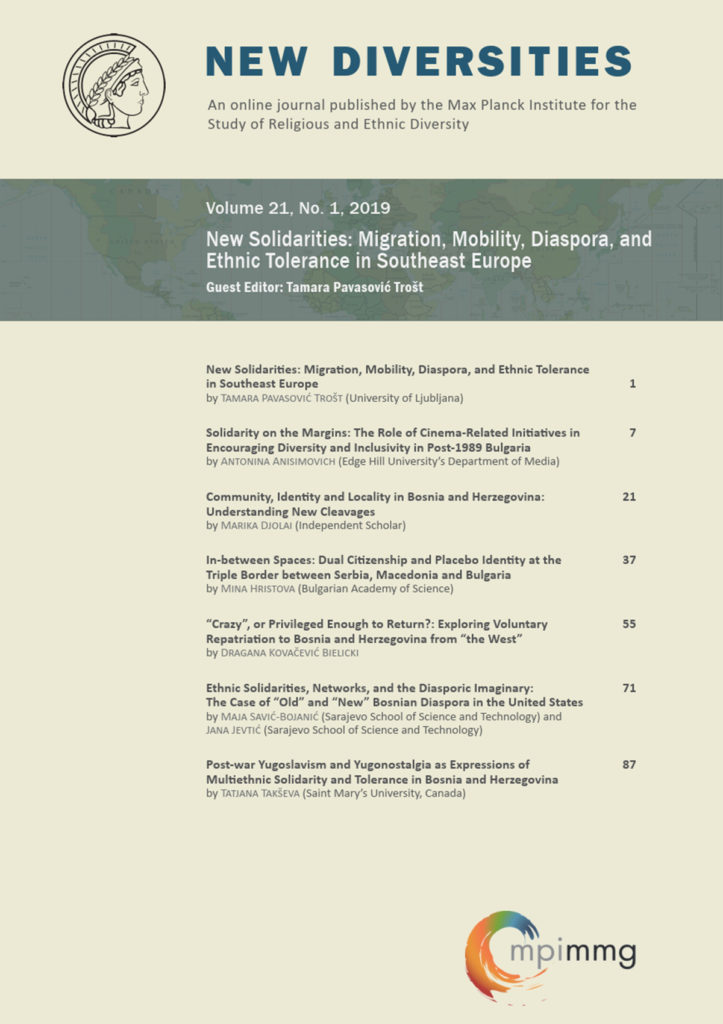In-between Spaces: Dual Citizenship and Placebo Identity at the Triple Border between Serbia, Macedonia and Bulgaria
by Mina Hristova (Bulgarian Academy of Science)
To cite this article: Hristova, M. (2019). In-between Spaces: Dual Citizenship and Placebo Identity at the Triple Border between Serbia, Macedonia and Bulgaria. New Diversities, 21(1), 37–54. https://doi.org/10.58002/b2sj-8w38
This paper examines identity strategizing in the border region between Serbia, Macedonia and Bulgaria, focusing on the processes which affect the young generation’s decision-making. I first examine the case of the Bulgarian minority in Bosilegrad, Serbia, where citizens live in a constructed “own” heterotopic space, belonging neither to Serbia, nor Bulgaria; locals, and especially young people, create fluid identities for themselves which help them to inhabit the vague spaces “in-between” national and ethnic identities, state borders, internal and external “others”. Second, I look at young Macedonians in Kriva Palanka, Macedonia, where cross-border nation-making politics create a different heterotopia: of youth at the edge of the Balkan states, who live both here and now, but also elsewhere – in the imaginary and future “West”, a “promised land” that will remedy them from the disappointments of their reality. They live in a state of standby migration characterized by their latent state, guided by the decision and the first steps towards migration; a phenomenon I call placebo identity.
Keywords: young people, identity, standby migration, dual citizenship, Serbia, Macedonia
New Diversities • Volume 21, No. 1, 2019
New Solidarities: Migration, Mobility, Diaspora, and Ethnic Tolerance in Southeast Europe
Guest Editor: Tamara Pavasović Trošt (University of Ljubljana)
- ISSN-Print 2199-8108
- ISSN-Internet 2199-8116
